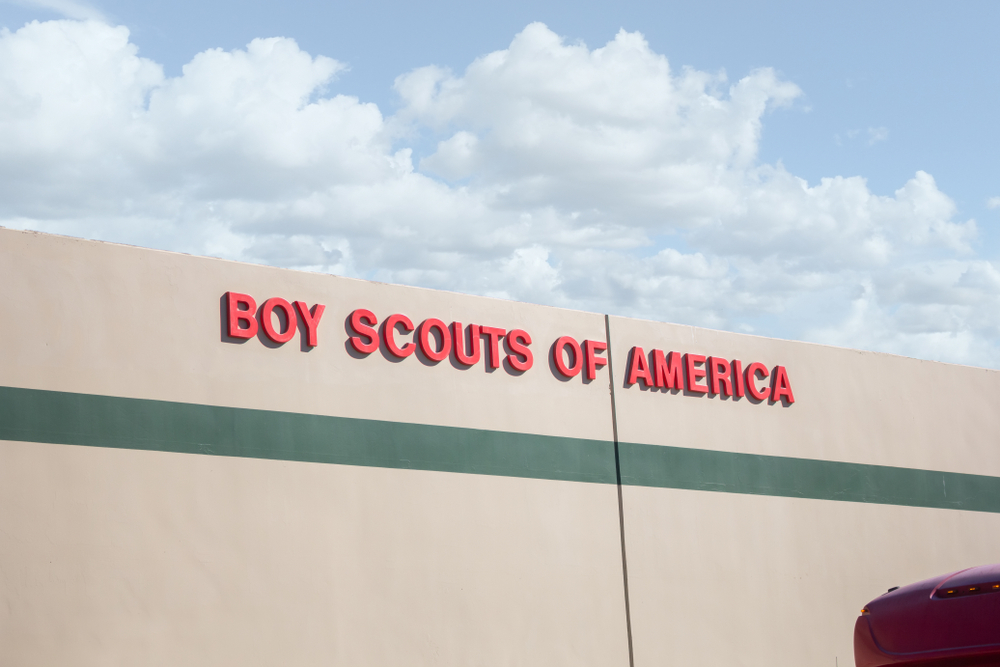It is no longer a secret that thousands of boys have suffered sexual abuse during their time spent within the Boy Scouts of America (BSA), an organization congressionally chartered in 1916. In 2020, the repercussions of the sexual abuse forced the BSA to seek bankruptcy protection, and filings against the organization topped 80,000 sexual abuse claims.
Three years later, the BSA has emerged from its Chapter 11 status. While officials overseeing the settlement process have begun directing claimants on how to receive their payout, questions remain.
While many are not clear on how much compensation they will receive and have been directed to follow up on an online portal instead of a courtroom, for others, there are concerns that those who should be held accountable for the abuse will not be. On top of all of this, a recent decision by the Supreme Court concerning another much-watched bankruptcy brings to the surface even more questions for survivors of sexual abuse brought on by the Boy Scouts of America.
The Scouting Settlement Trust
In April, when the Chapter 11 status was removed, the Scouting Settlement Trust, whose terms and conditions were approved by the bankruptcy court, went into effect, with Judge Barbara J. Houser, a well-known bankruptcy judge from Texas, at its helm.
Houser is required to oversee the resolution of the abuse claims and manage the assets owned within the trust, which includes cash and property contributed by the BSA.
This was followed by an August 4 announcement from Houser on the trust’s website. At the time, she reported that the trust had officially launched the opening of the portal for the first round of victims, 7,000 claimants who selected the “expedited distribution (or “quick pay”) liquidated payout when they submitted their ballots on the BSA’s plan of reorganization in March 2022.”
On August 17, Houser posted another announcement to the remaining claimants, letting them know the portal was also now available to them.
“Now an estimated 75,000 Claimants or their counsel will receive credentials to access the Claims Processing Portal. This will allow them to complete their Trust Claims Questionnaire and submit supporting documentation,” she wrote.
While the portal is open to claimants, and as recently as August 24, Houser added additional information concerning the portal (alerting claimants of a series of upcoming Town Hall-style information sessions), there are still many unanswered questions and concerns.
In large part, the unanswered questions are due to another widely watched bankruptcy case currently playing out in the court system.
BSA Connection with Purdue Pharma and the Sackler Family
On August 10, the Supreme Court blocked Purdue Pharma’s settlement of opioid lawsuits against its owners in order for the justices to consider whether or not Purdue’s bankruptcy plan wrongly does away with the potential liability to others who were instrumental in causing the opioid addiction crisis (namely the Sackler family who ultimately owns Purdue).
For the Sackler family, the High Court’s decision to block the settlement keeps them all in limbo. The family members still do not know if they are free of having to use their own money to pay off the claims against their company or whether they personally will be resolved of liability for having a part in the crisis.
So what does this have to do with the Boy Scouts? As explained in a Wall Street Journal article, by taking up the case and preventing Purdue from carrying out the settlement during the appeal, the justices are ensuring “…that a sizable chunk of tens of billions of dollars pledged by the pharmaceutical industry to combat the opioid crisis will be delayed—or not paid at all.”
However, at the same time, the move eventually could open the door for parties who balked at the deal to win additional compensation.
The Lujan Boy Scout Claimants Weigh In
Back in March, a group of victims known in court filings as the Lujan claimants asked that the BSA bankruptcy settlement plan be reconsidered due to the U.S. bankruptcy code permitting releases of claims against people and groups that have connections to the bankrupt company (the churches and schools who sponsor the Boy Scout troops, for example).
At the time, the group was denied. However, now in light of the Supreme Court’s plan to review the issue, the Luajan claimants are not only appealing the March decision but asking for the BSA’s payout plan itself to be put on hold until after the Supreme Court makes a decision in the Sackler case.
In the Lujan claimants renewed motion it states, “A stay in the plan would conserve funds which would otherwise be spent implementing a plan that may be invalidated should the Supreme Court rule against nonconsensual third-party releases.’’
The Supreme Court justices intend to hear the Purdue case in December.


